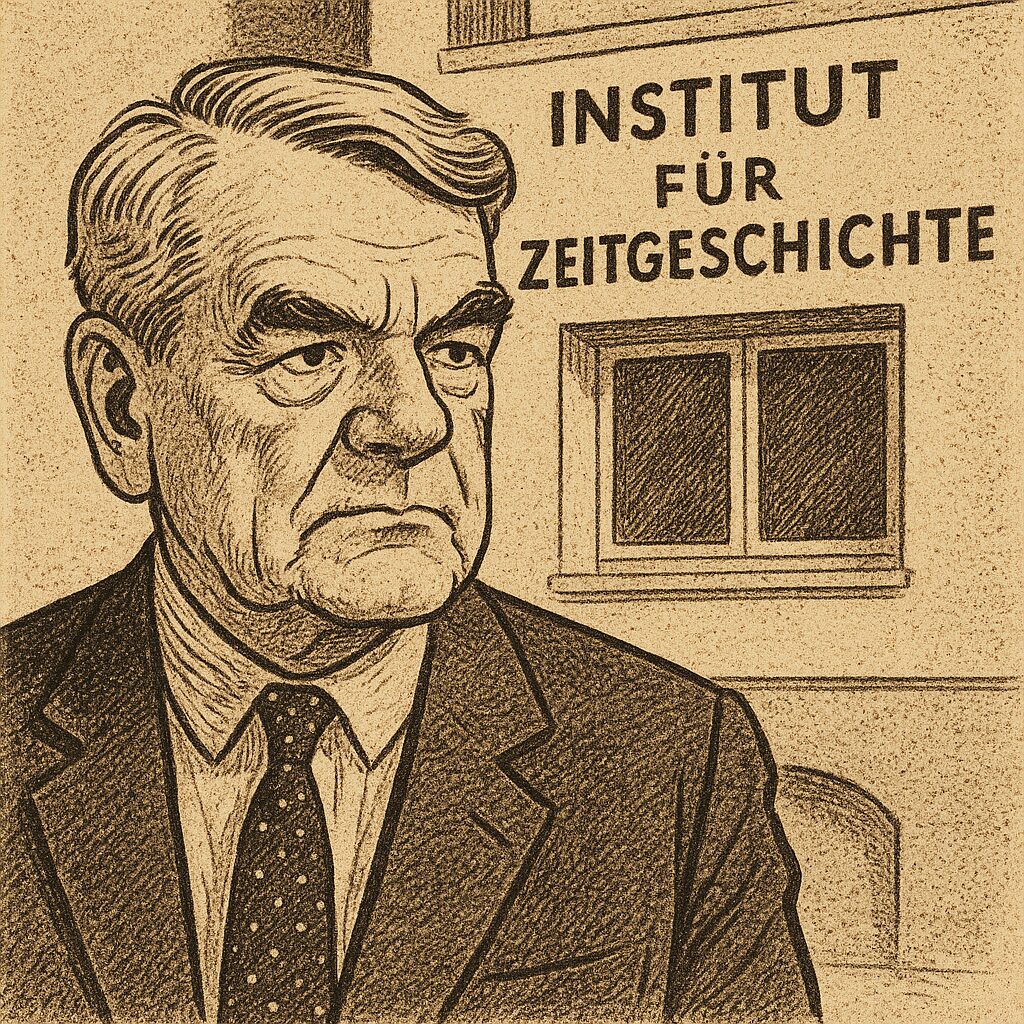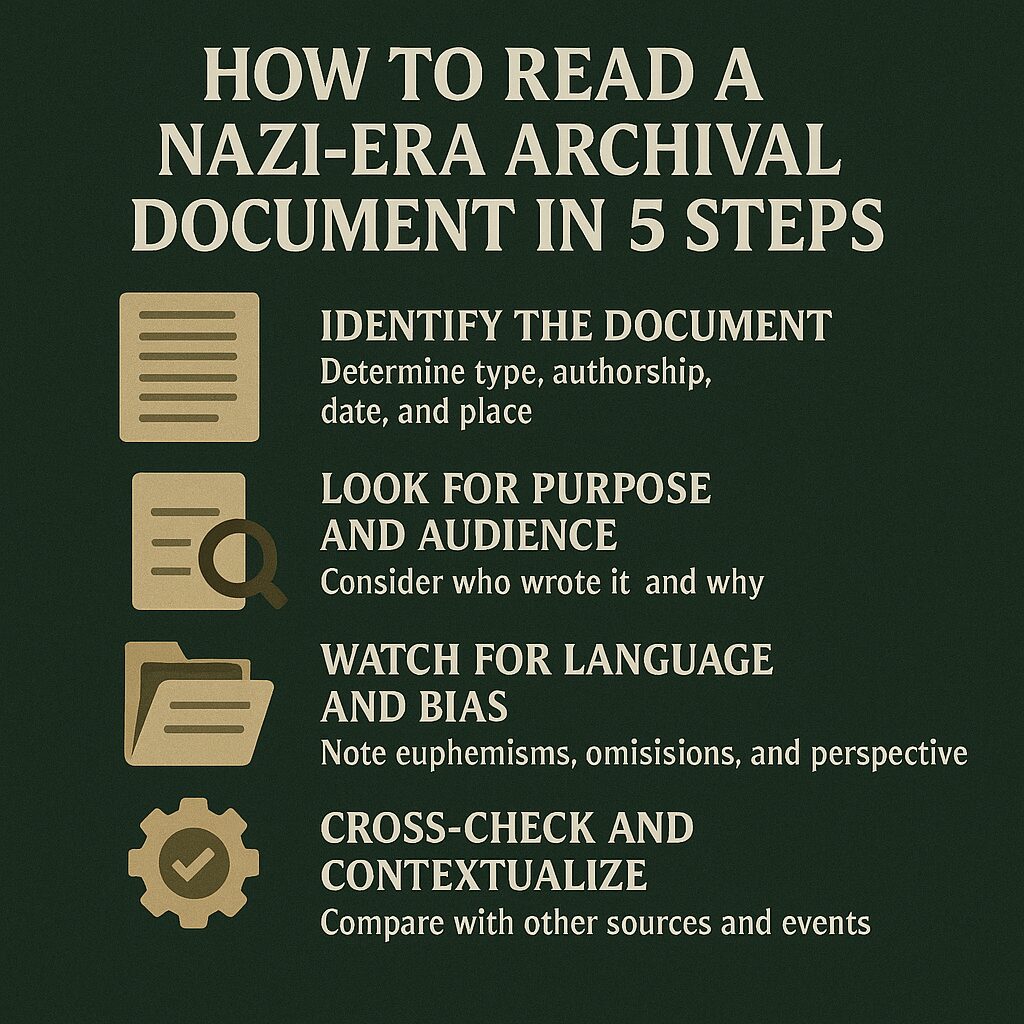By Irving Collection Staff
The Goebbels Diary Affair
But the cooperation soured. In 1992, while preparing a biography of Joseph Goebbels, Irving asked to consult the unpublished portions of the propaganda minister’s diaries held at the institute. His request was refused on the grounds that the materials were being edited and were not available to outsiders.[7]
Irving bridled at what he saw as hypocrisy. An institute that owed much of its cachet to the documents he had donated was denying him access to its own holdings. He flew to Moscow, where the complete Goebbels diary had recently surfaced on glass microfiche, and secured access within days — a scoop widely reported at the time and chronicled in subsequent accounts.[8][9]
The episode underscored the collapse in relations. Irving felt betrayed; the institute, increasingly uneasy with his reputation, sought distance. Yet the paradox remains: long after he was unwelcome in German archives, scholars continued to mine the Sammlung Irving for source material.[10]
Generosity Without Recognition
Even as relations frayed, Irving’s gifts continued to strengthen the historical record. Files he had traced and preserved — from personal diaries to wartime memoranda — were accessioned, described and made available to researchers under professional archival standards at Munich.[11]
A One-Sided Deal
Legally, the gifts are irrevocable. Under German civil law, once documents are donated without condition they become the property of the receiving institution. The narrow statutory grounds to revoke a gift for “gross ingratitude” do not plausibly apply to routine archival access disputes; in practice, a donor cannot reclaim an unconditional donation.[12]
The result is that Munich retains hundreds of files he collected, preserves them and allows others to consult them — while the donor himself is remembered chiefly for the controversies that later engulfed him.
Conclusion
Whatever one’s view of his subsequent career, the record is clear: without Irving’s energy and generosity, many of the most important sources on the Third Reich would never have reached the reading rooms of German historians. The Sammlung Irving stands as both a monument to his diligence and a reminder that institutions are not always as generous to their benefactors as their benefactors are to them.
References
- Overview of holdings citing the Irving Collection within IfZ publications and notes on provenance:
IfZ journal issue (2016), p. 55.
↩ - IfZ online catalogue, Sammlung Irving, person-indexed files (example entry):
ED 100 – Sammlung Personen (Milch).
↩ - IfZ online catalogue, additional Sammlung Irving listing:
ED 100 – Sammlung Personen (E–F).
↩ - IfZ reference to the Hewel diary and related items within the Irving files:
IfZ journal issue (2016), p. 55.
↩ - Martin Broszat, “Hitler und die Genesis der ‘Endlösung’,”
VfZ 25 (1977) no. 4, discussing Irving’s sources and their availability at IfZ.
↩ - IfZ archival PDF list mentioning “Sammlung Irving” (ED 100) among special collections:
IfZ Archiv – ED 100 reference (PDF).
↩ - Contemporary and retrospective accounts of the access dispute over Goebbels diaries (editing status at IfZ and limitations on outside access) discussed in:
Irving v. Penguin & Lipstadt, trial narrative (Section XII).
↩ - Initial discovery coverage:
Los Angeles Times, July 4, 1992;
wider press chronologies summarized in
Goebbels Diaries.
↩ - Washington Post feature on the 1992 furor and Irving’s Moscow access arrangement:
“The Furor Over Goebbels’s Diaries,” July 10, 1992.
↩ - Examples of continued scholarly citation of the Irving files in IfZ publications:
IfZ journal issue (2016), p. 55.
↩ - IfZ catalogue shows the Irving files integrated under standard series and person-indexed subseries (ED 100), e.g.:
ED 100 – Band 22 (Milch).
↩ - Legal basis on irrevocability of gifts and narrow revocation for “gross ingratitude”:
BGB § 530.
↩


